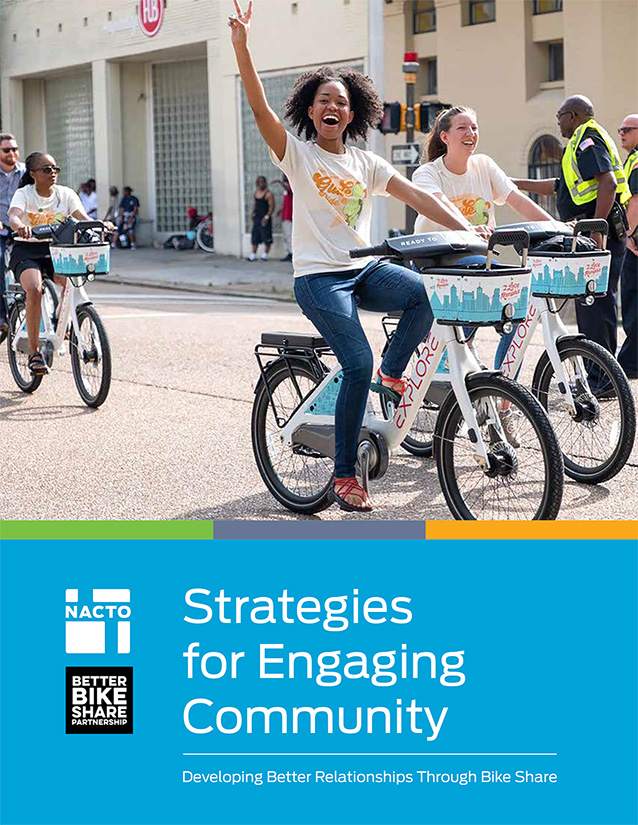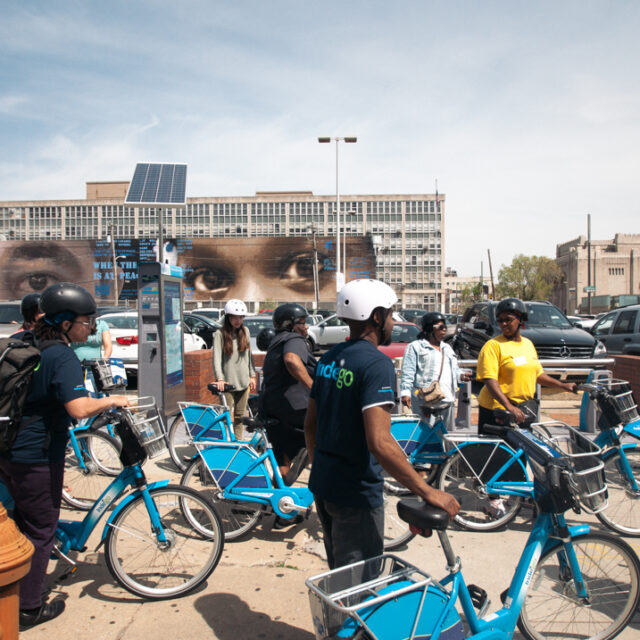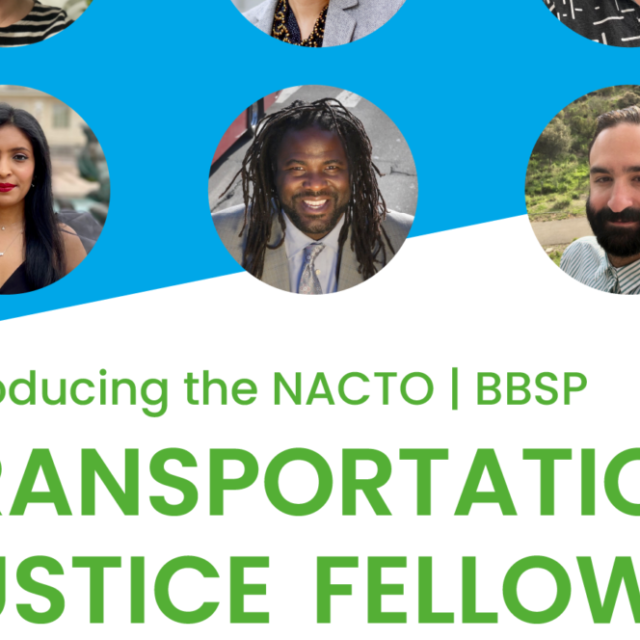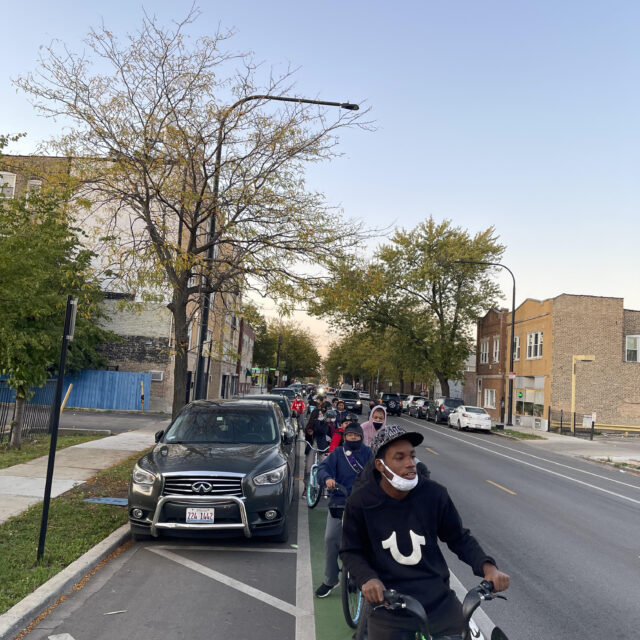Committing to Community
by National Association of City Transportation Officials (NACTO)
November 1, 2021
A recap of the 2021 Shared Micromobility and Cities for Cycling Roundtable, organized by NACTO and BBSP.
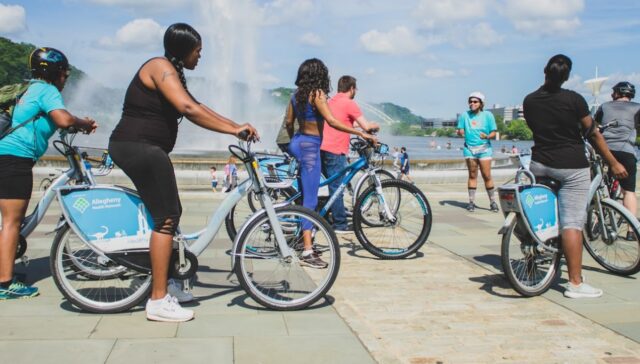
As cities locked down over spring 2020, people took to their people-powered wheels. From skyrocketing private bike sales (and the ascendance of e-bikes) to record-breaking ridership on bike share systems, last year’s boom showed the essential role bikes, scooters, and other forms of micromobility play in keeping people—and cities—moving. It also highlighted the need for new practices to help cities keep up with the demand for safe places to ride and accessible and convenient vehicle options—and how to use these tools to help make streets safer, improve access to opportunities, help correct inequities, and address the increasing climate emergency.
This year’s Shared Micromobility and Cities for Cycling Roundtable, hosted by BBSP and NACTO, centered these goals. Staff from NACTO’s 91 member cities came together to share expertise, insights, challenges, and ideas across the intertwined work of bike share, shared micromobility, and bike planning in eight practice-based and four networking sessions.
Much of the Roundtable covered technical topics for scaling up impactful programs, from tradeoffs between different materials used to protect bike lanes to requirements for equitable e-scooter distribution to approaches for collecting ridership data on bike facilities. These sessions allowed peers to have open conversations and brainstorm together in a candid and collaborative environment. They also created space to lay the groundwork for an upcoming update to the NACTO “Urban Bikeway Design Guide”—coming soon!
Evolving Guidance for Evolving Demands
During the roundtable, practitioners laid the groundwork for new upcoming guidance that will reflect advances in practice since 2014, when the second edition of the “Urban Bikeway Design Guide” was released. At the time, painted bike lanes opened the door for people to reclaim streetspace on a broad scale. Almost a decade later, this type of design has revealed the importance of contextual design, which serves people of all ages and abilities. It is necessary to build protected and connected bike networks to encourage significant—and sustained—adoption of low-carbon, low-cost multimodal transportation.
Sessions from the 2021 Roundtable delved into new best practices for supporting equitable bike and scooter share policies, high-quality bikeway designs, strategies for reinforcing infrastructure investments, ways to safely incorporate newly shared (and private) micromobility technologies on city streets, and how to improve multimodal connections, especially to transit.
Deep Engagement is the Foundation
Comprehensive change will fall flat, however, without a commitment to community. This year’s Roundtable highlighted that an active and honest effort must be made to bring more voices, identities, and perspectives to the table when regulating and designing for sustainable, safe, and equitable transportation. Cities are demonstrating that, as the technical side of city transportation evolves, so too does the field’s relationship with deep, meaningful engagement.
This is critical for achieving badly needed improvements to public streets—a successful bike or shared micromobility program is about more than mileage or the number of docking stations. It’s about facilities and programs that are accessible, representative, and beneficial to the communities in which they exist. Many local governments are admittedly late to this conversation and there is much ground to cover to build trust and meaningful relationships with the people they work to serve. But settings like the Roundtable give practitioners an opportunity to learn from one another in an effort to improve, as well as set new best practices that put the local expertise of communities first.
Over multiple sessions, attendees and panelists discussed strategies for incorporating meaningful engagement into planning work and decision-making in order to build dialogue and trust between city staff and local residents. The takeaway: a flexible engagement model that is deeply rooted with trusted community voices, responsive to existing needs and concerns, and brings people in as agents of change, rather than recipients of a project, can lead to better–and more lasting–results.
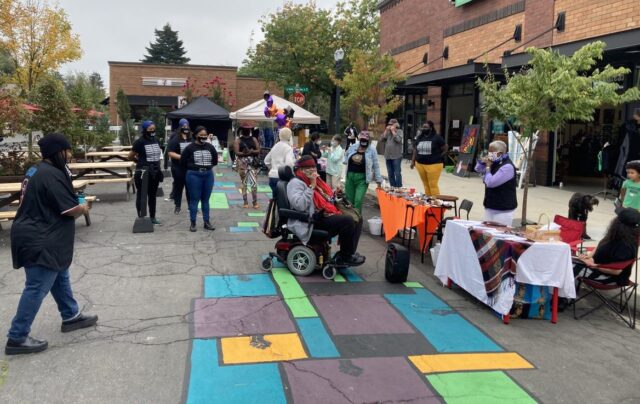
While no one is doing it perfectly, there are models for meaningful engagement within city transportation, including the following programs highlighted during the Roundtable:
In early 2021, Pittsburgh launched a Community Coalition to improve inclusion and transparency in decision-making with the city’s bike share system. This group will inform operational, expansion, and outreach decisions over the next three years.
Both funded by BBSP Living Labs grants, Chicago is empowering local youth to shape bike share education and expansion in the Belmont Cragin neighborhood, while Cincinnati is boosting staffing and local programming to grow open and equitably as the system expands.
Likewise, NACTO’s Streets for Pandemic Response and Recovery grant program puts money towards partnerships between city transportation departments and local community organizations. Founded on the premise that community partners play a critical role in envisioning and implementing smart, equitable public projects and services, these grants seek to build safer, more connected streets by helping build relationships.
Building Better Outcomes
The state of practice in city transportation is always evolving. That’s why NACTO and BBSP are proud to host the annual Roundtable and nurture a space for practitioners to connect with and learn from one another. That’s also why we’re so excited about NACTO’s updated bike guidance, which will support its members, decision-makers in the city transportation field, in promoting public health, safety, and welfare on streets. Stay tuned for more details over the coming weeks!
The Better Bike Share Partnership is funded by The JPB Foundation as a collaboration between the City of Philadelphia, the National Association of City Transportation Officials (NACTO) and the PeopleForBikes Foundation to build equitable and replicable bike share systems. Follow us on Facebook, Twitter and Instagram or sign up for our weekly newsletter. Got a question or a story idea? Email kiran@peopleforbikes.org.

